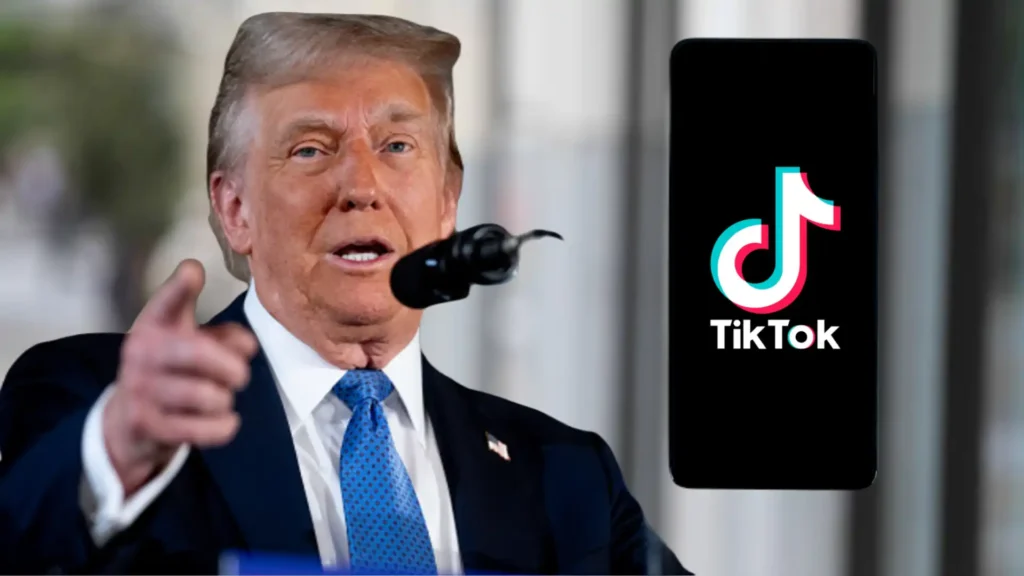Table of Contents
Trump’s Out of the Ordinary Supreme Court Brief

President-elect Donald J. Trump asks that a law that requires TikTok to sell or shut down by January 19 not be enforced right away. This date is one day before his inauguration, which is why the brief asked for more time to deal with the issue politically.
“President Trump is against banning TikTok in the United States at this time and hopes to be able to solve the problems at hand through political means once he takes office.” The brief doesn’t talk about the main legal question the Supreme Court has to decide, which is whether Congress broke the First Amendment by essentially banning TikTok. Instead, it shows how Mr. Trump is uniquely qualified to work out an answer.
The brief talks about Trump’s skills.
“President Trump is the only one with the perfect deal-making skills, the electoral mandate, and the political will to negotiate a solution to save the platform while also addressing the government’s national security concerns.” It shows how good Mr. Trump is at using social media. It shows how many people follow him on TikTok and how well he knows how the site can support free speech, including political speech.
TikTok’s Defense of the First Amendment
In its own statement, TikTok says that the law is unconstitutional because it limits the speech of 170 million American users because of unproven claims that China could be a threat to national security. According to TikTok’s brief, the government has banned a huge amount of speech, wants people to believe unproven claims that a future risk will come true, and gets facts wrong when it does provide them.
Why the Biden administration thinks that
The Biden administration defends the law by saying that it has support from both parties and pointing out the risks that come from China owning TikTok. The government says that the platform’s ability to gather sensitive data and be used for disinformation campaigns are major threats to national security. The administration’s brief says, “The law addresses the serious threats posed by the Chinese government’s control of TikTok.” It points out that the platform can be used to spy on people and do secret operations to change their opinions.
Users Who Are Against the Law
Some TikTok users and people who support the app are aware of the tense political competition between the US and China, but they don’t think that limiting the First Amendment rights of millions of Americans is the right way to deal with it. “Nothing like this act has ever been allowed,” they say in their brief, “and it goes against our history, tradition, and precedent to silence Americans’ speech.”
The Supreme Court will hear arguments in January.
The case has been sped up so that it can be settled before the date of January 19. On January 10, the Supreme Court will hear the arguments. What happens will decide what will happen to TikTok in the US. The app has become an important part of culture and society, especially among young people.
What TikTok Does for American Culture
TikTok’s brief talks about how important it is to American life, calling it a place for people of all kinds to express themselves and build communities. The brief says, “Americans use TikTok to talk about all kinds of things, from culture and sports to politics and the law, to business and humor.” This shows how important it is to many social and support groups.
Speeding up the review process for judges
The in question law requires a faster review process by the courts, skipping federal trial courts and giving power to the U.S. Court of Appeals for the District of Columbia Circuit. A group of judges with very different political views all agreed with the government that the restrictions were legal under the First Amendment because they were necessary to protect national security. “The First Amendment is there to protect free speech in the United States,” wrote Judge Douglas H. Ginsburg for the whole group. “This time, the government only did what it did to protect that freedom from an enemy nation from another country.”
Trump’s brief brings up problems with timing.
The brief from Mr. Trump questions the timing of the law’s enforcement, saying that it makes it harder for him to handle the situation properly once he is in office. The brief says, “This unfortunate timing makes it harder for President Trump to handle U.S. foreign policy and work toward a solution that protects national security and saves a social media platform that gives 170 million Americans a popular way to exercise their core First Amendment rights.”
Two cases in front of the Supreme Court
The court will hear two cases: TikTok v. Garland, which is a challenge from the app, and Firebaugh v. Garland, which is a challenge from content authors and users. TikTok proudly claims to be American by saying that foreign investors own most of the company, even though its parent company is Chinese and is called ByteDance. The brief for TikTok says, “TikTok cannot be deprived of its First Amendment rights, even if China could theoretically pressure ByteDance’s Chinese affiliates to change its algorithm.”
What the government thinks about who owns TikTok
The government says that ByteDance’s operations in China and its offices in Beijing are inherently dangerous. The government’s brief concludes, “The act is narrowly tailored to address the compelling interests of preventing threats to national security.” This shows that the act’s main goal is to protect American data and stop bad foreign influence.


 Visit Our Google News Page
Visit Our Google News Page